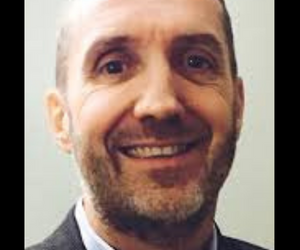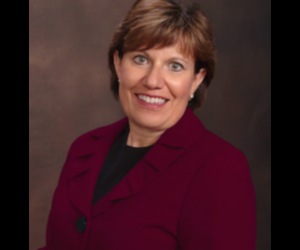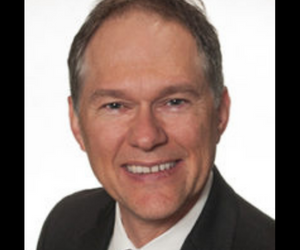Knowledge Services: Crucial in Today’s Knowledge Economy
If you’re beautifully organized, you can quickly find all your documents when you need them. However, if you’re like most people, the frustration and lost time spent trying to locate a needed document can be seriously irritating.
However, your worst experience trying to retrieve a missing piece of information pales in comparison to what regularly happens in large organizations. The question of “Where do I find this?” uses up enormous amounts of time and resources.
Or worse, the information can’t be found at all, and the people who need the information have to develop it again from scratch. While reinventing the wheel, they need to go through the entire learning process all over again and they’re likely to duplicate past mistakes since they’re unable to benefit from experience.
To see how this plays out in actual practice, and then what can be done about it, Guy St. Clair, the founder of SMR International, gives two examples from his professional experience. One involves the fact that the information was never retained and the other, is, the information exists but just can’t be located.
He’s disguised the names of the countries and agencies involved, but the gist of the stories is entirely accurate. See if you’ve experienced either kind of dysfunction in your own organization.
The Information Doesn’t Exist
For the first example, suppose you work for a UN agency that has built wells in Africa. This effort has improved the health and well-being of thousands of people. Funds for these efforts came from donor countries, and in the past dozens of countries have given grants for building these wells.
However, there’s a problem. When the well-building projects were completed, the donors, took a figurative victory lap, and then moved on to other efforts.
Typically, they didn’t spend the money needed to record and catalogue how they accomplished the task. Then, when a fresh grant comes in for building more wells, the agency lacks the detailed directions on how they built the previous wells.
The agency needs to figure out all over again such factors as costs, time-lines, reliable contractors, area experts and on and on. Scarce money and resources get wasted re-inventing how to build wells.
The Information Can’t Be Found
The other kind of information loss that St. Clair likes to help prevent is, say you run a large PR firm that does jobs for the XYZ Corporation. Then you get a contract for a similar task from another client.
To your consternation, neither you nor anyone else can locate the records that you know exist. You’ve spent thousands of hours on research, yet the research is useless to you now that you need it again.
In this case, the task of saving the content and tagging it for retrieval was turned over to a new hire who didn’t understand the terminology. He input the data into the company database in such a way that no one else can find it.
How to Avoid These Problems
In today’s workplace — whether it’s a business, a non-profit, a not-for-profit, or any other type of organization — we hear all the time about “big data,” “too much information” and similar descriptions, and the examples described here are typical.
“One way to think about it,” St. Clair says, “is to understand that all this data, information, and everything else everyone in the company knows is the company’s knowledge, its intellectual capital, and it’s an asset clearly recognized as currency in today’s management environment. But how do we get people use that currency, to share knowledge?”
St. Clair’s solution? He encourages organizations to take advantage of the relatively new specialty of knowledge services.
“It’s an approach to knowledge-sharing,” St. Clair says. “Knowledge services brings people with academic training in this work into the organization. We call them “knowledge strategists” or “knowledge services professionals,” and they are the people who know all about retaining and accessing an organization’s information and knowledge in the most efficient and cost-effective way.
And they don’t do it alone: In St. Clair’s view, the organization’s senior leaders also have a role in the process. “It’s a cooperative effort,” he says. “Senior leaders need to take responsibility for knowledge management, to share and justify to other C-suite people the importance of having trained knowledge services professionals in the organization. And when both knowledge strategists and senior leaders work together, the organization is better managed and more successful, functioning as a knowledge culture.”
For more information on knowledge services, visit St. Clair’s blog at: www.smr-knowledge.com. You can also e-mail him at guystclair@smr-knowledge.com or call him at 917 797 1500.
Search Articles
Latest Articles
Healing Ukraine’s Hidden Wounds: AI and Women’s Organizations Offer Hope
https://foreignpress.org/journalism-resources/healing-ukraines-hidden-wounds-ai-and-womens-organizations-offer-hope Publication –foreignpress.org
Who’s Leading the Digital World? Surprise—It’s Estonia
https://foreignpress.org/journalism-resources/whos-leading-the-digital-world-surpriseits-estonia Publication –foreignpress.org
United Nations Women’s Peace & Humanitarian Fund Launches Global Luminary Campaign With Advocate Kristen Bell
https://jameslanepost.com/united-nations-womens-peace-humanitarian-fund-launches-global-luminary-campaign-with-advocate-kristen-bell/02/17/2025/Hamptons-News-Happenings Publication –jameslanepost.com
A Breakthrough in Schizophrenia Treatment
https://foreignpress.org/journalism-resources/a-breakthrough-in-schizophrenia-treatment Publication –foreignpress.org
Subscribe to Updates
About Author

Mitzi Perdue is the widow of the poultry magnate, Frank Perdue. She’s the author of How To Make Your Family Business Last and 52 Tips to Combat Human Trafficking. Contact her at www.MitziPerdue.com
All Articles
Volatile Markets? Try Non-Correlated Investments
Volatile Markets? Try Non-Correlated InvestmentsAt a recent meeting of the Ritossa Family Office Summit in Dubai, Jagdeesh Prakasam said something that caught the attention of the several hundred investors who were listening to him. He said that by using artificial...
Family Governance Issues: Are You Struggling with Them
Family Governance Issues: Are You Struggling with ThemFamily businesses resemble countries in at least one key way. When you get the governance right, people have a chance at prospering and thriving. If you get it wrong, the result can mean unending distress. Babetta...
Family Businesses, a Unique Treasure to Their Communities
Family Businesses, a Unique Treasure to Their CommunitiesOlivier de Richoufftz from the Family Business Foundation knows something you probably don’t know about the Michelin Tire Company. This company contributes something of amazing and irreplaceable value to its...
What Coaching can do for you
What Coaching Can Do For YouKaren Snyder founded Concordia Consulting 27 years ago. Through her work, she helps senior executives and their teams achieve extraordinary results by working collaboratively. What has Karen learned in those 27 years that can help all of...
Entrepreneurs in the Family Business: Without Them, You’re at Risk!
Entrepreneurs in the Family Business: Without Them, You're at Risk!Entrepreneurship is essential for a family business to thrive. According to Bobby Stover, EY Americas Family Office Leader, “A family business that doesn’t find new opportunities is a family business...
Chad Naylor’s Investments and His Not-So-Secret Sauce
Chad Naylor’s Investments and His Not-So-Secret SauceBy Mitzi Perdue Chad Naylor from Naylor & Company Investments, LLC has an investment thesis that’s enabled him to make some extraordinary profits. Since the company’s founding over 14 years ago, their...






